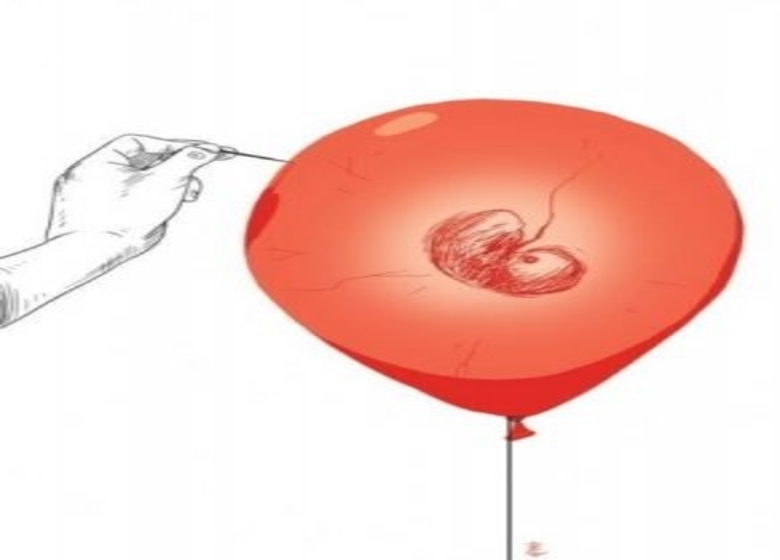Know How To Avoid Pregnancy After 1 Month
You may want to Avoid pregnancy Which is unplanned and unwanted, or if it poses any risk to your health. You can avoid having a baby by medically or surgically stopping the pregnancy. But are there any other ways, especially after a month, to end the pregnancy.
Avoid Pregnancy After A Month:
If you have decided to avoid pregnancy in the early staged periods, say a month afterward, your doctor will be able to suggest a medical, surgical, or home-basic option according to your health and fetal status. However, terminating your pregnancy with medicines is a better option because it is non-invasive.
How can pregnancy be stopped without surgical abortion?
Some of the effective ways without surgical intervention to stop a pregnancy include:
1. Medical abortion:
Using pills, this method is usually recommended within the first 7 to 9 weeks of pregnancy. You don’t need to be admitted to a hospital because pills can be used safely in your home’s privacy. But during the course of the treatment, you may need to visit the doctor at least three times.
Two tablets, mifepristone, and misoprostol will put you on a course:
- First, mifepristone is used to block the progesterone hormone and to dilute the uterine wall.
- Misoprostol is given 48 hours later to induce contractions of the uterine muscle. This results in bleeding and cramping. The remains of the embryo and uterine will leave the uterus in the coming days. And for seven to ten days the bleeding will continue.
- After two weeks, an ultrasound is done to ensure everything is cleaned and there are no remains of tissue. If tissues are retained, they will be surgically removed.
2. Herbal Abortion:
Not everyone is going to choose this abortion method. Several herbal infusions may lead to fetal morbidity and mortality, but such methods are not supported by research. Herbs such as petroleum, oregano, and ruda are used to stop pregnancy by causing a miscarriage.
3. Saline Water Method:
A small amount of amniotic fluid is removed in this method and the saline solution is administered directly using a needle into the amniotic sac. The salt solution burns the fetus and the body is struggling to expel the fetus around this time. There is no labor in some cases, and prostaglandins are injected to induce uterine contractions.
If these methods do not work, the surgical options may need to be selected.
Surgical Abortion Of Pregnancy
The surgical abortion recommended by the doctor will depend on the stage of pregnancy. The two common methods are MVA (manual vacuum aspiration) and D&E (dilation and evacuation) performed in the hospital, requiring local anesthesia.
1. MVA:
This is done during the first 12 weeks of pregnancy. Local anesthesia is used to numb the cervical region. After that, the cervix is opened with a tenaculum and held dilated. A thin, sucked cannula is passed through the cervical canal into your uterus to remove the fetus and uterine tissue. It takes 10 to 15 minutes, and you may have to stay in the hospital for several hours to ensure an optimal recovery. It is a gentle and relatively safe procedure.
2. D&E:
This happens within or after the 13th week of pregnancy and is usually the last option if the other methods are unsuccessful or unsustainable after a month’s pregnancy. A few hours before the actual procedure, a dilator is inserted into the cervix to help dilate it.
The practitioner uses spinal anesthesia or general anesthesia to decorate the cervical area. The cervix and uterus are opened after passing a tenaculum.
The cervical canal is dilated by increasing size samples. Then a cannula is passed into the uterus that is attached to a pump. The pump provides a smooth vacuum for fetal and uterine tissue removal. Later, the uterine lining and tissue residue are scraped with a curette. The procedure takes 15 to 30 minutes, and for optimal recovery, you may need to stay in the hospital for a few hours.
An invasive method is a surgical option, and during the procedure, you may experience dizziness, cramps, nausea, and sweating. Some may also have severe bleeding, damage to the cervix, blood clots, and uterine perforation. There is also a chance of infection, and fever and abdominal tenderness may develop for which you should see a doctor.
Dangers Of Home Abortions
Home abortions are only safe when the healthcare provider performs/advises you to complete the whole process. Otherwise, complications could occur, such as
- Womb Infection
- Fetal tissue remains in the womb
- Termination Failure
- Excessive bleeding that may require transfusion of blood
- Damage to the womb
- Risks to mental health in some cases
Including enough nutrition and getting the right treatment to return to normal life is essential. Your doctor will probably give you the treatment and advice you need for your recovery.
How To Recover Soon After Abortion:
- Although you can return to a normal routine within a few hours of abortion, it is advisable to rest for your body and mind for two to three days to cope with the exhaustion.
- Do not lift heavy objects weighing more than 50 pounds. They can make bleeding worse and lead to complications.
- Do not indulge in exercise to avoid risks, including cycling, running, and aerobics.
- Monitor your body temperature for at least a week every day as high temperatures may indicate an infection.
- Avoid intercourse as the cervix remains tender and is not going to close quickly. Sex avoidance also reduces the risk of infection. Talk to your doctor about the best time to get back to sexual activity.
- Use a hot compress to relieve cramping and pain, such as a hot water bottle or a heating pad on your belly.
- Avoid at least two weeks of swimming and bathing in the tub. Otherwise, it can cause vaginal area irritation and infection.
- Do not use tampons or contraceptive implants inside the vagina for at least two weeks.
Within a month of abortion, it is advisable to see a doctor check if the healing is complete.
For many, terminating a pregnancy is not an easy option, and you may also regret it later in life. The process can physically and emotionally take a toll on you. Therefore, you should take enough time to seek your partner and family’s support to make the right decision. For medical advice, consult your doctor. Your doctor is just the best guide for you.
Also Read: Know About Vanishing Twin Syndrome













